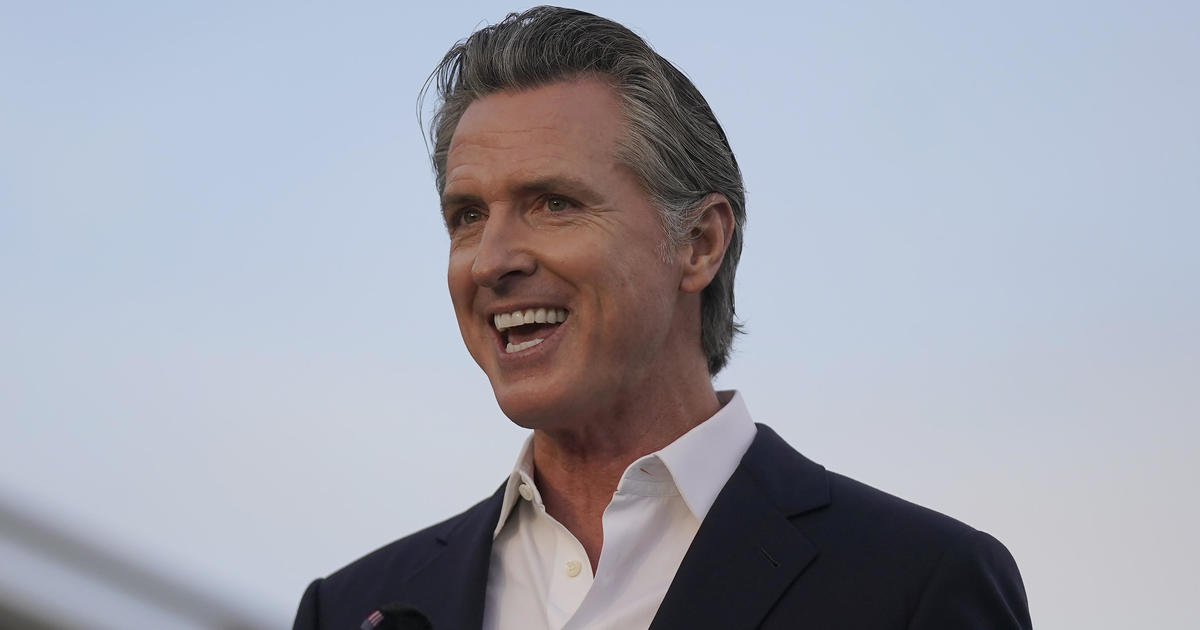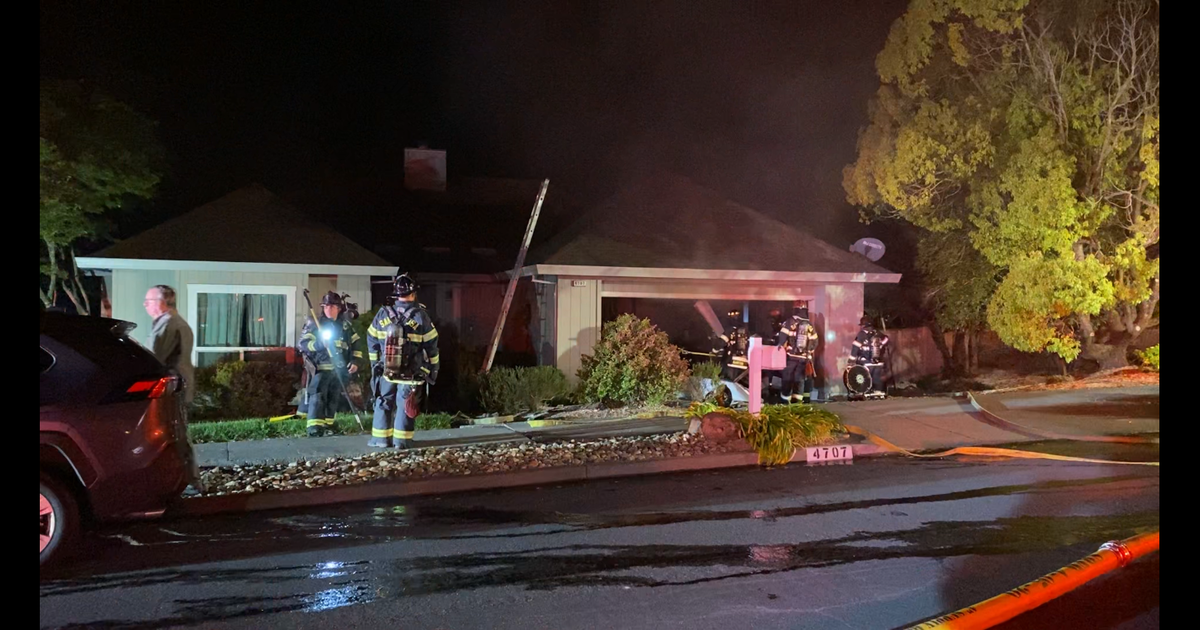Coronavirus Pandemic Impacting Cal Fire Wildfire Preparedness As Peak Fire Season Arrives
SACRAMENTO (CBS SF) -- Governor Gavin Newsom acknowledged impacts of the coronavirus pandemic on California's wildfire preparedness efforts during his press briefing on Thursday but sought to allay concerns as the state begins to reach peak fire season.
The governor also said COVID-19 quarantines have substantially cut the total number of personnel available to perform front line work on wildfires. Only 94 out of 192 inmate fire crews from the Calfornia Department of Corrections and Rehabilitation are available because of COVID-19 infections and quarantines, said Newsom, along with a fewer number of the crews from the California Conservation Corps.
Earlier this month, state Sen. Nancy Skinner (D-Berkeley) said the transfer of inmates from San Quentin to the California Correctional Center in Susanville has now triggered an outbreak at that prison, which houses the vitally-needed inmate wildfire-fighting teams.
To supplement crews, Newsom said Cal Fire will hire 858 seasonal firefighters through October at least and the recently-passed budget includes $85.6 million for an additional 172 permanent Cal Fire staffers.
"It's a tired cliche, but you've got to walk and chew gum," Newsom said. "At the same time we're focused on coronavirus mitigation, trying to do our best to suppress the spread. At the same time, we've got to mitigate and suppress these fires as we move into wildfire season."
Newsom said the budget also includes $285 million for news Blackhawk helicopters for Cal Fire aerial firefighting fleet, $130 million for upgraded communications equipment, $5 million for wildfire cameras, and $25 million for new technologies and wildfire modeling.
The firefighting investments come as the state has seen the number of wildfires jump sharply from last year at this time. There have been 628 fires just in the last week in California, and 4,112 wildfires this year to date, compared to an annual average 2,580 of wildfires statewide.
Newsom noted that Cal Fire improvements have meant the size of fires have been contained, with most being an average of 6.6 acres average, within Cal Fire's goal of keeping fires under a 10-acre average.
"We believe, despite the fact we've seen an increase with a very dry winter, an increase in the total number of fires, that the team here ... is up to the task," said Newsom. "But I say all that very soberly, on the basis of the fact that just in the last ten years, five of the most destructive wildfire seasons we have incurred."
The governor said the state is absorbing the impacts of the coronavirus pandemic on its firefighting efforts even as wildfires become more and more destructive.
"The hots are getting hotter. The dries are getting drier. The wets are getting wetter. You may call that climate change, you may call that global warming. But one thing we know is our approach to dealing with wildfires has to change and adapt with a climate that is changing very dramatically."
With PG&E now out of bankruptcy, Newsom said the state has now issued new criteria on the utility's wildfire preparedness efforts, including tightened requirements on vegetation management, modernizing its grid, improved infrastructure, and more precise power shutoffs when needed. Legislators have passed a bill to allow the state to take over PG&E if it's not meeting the new criteria.
"It took us decades for PG&E to create the mess that they created where they ended up in bankruptcy for the second time in the last decade-plus," said Newsom. "None of us, again, are naive about what they need to accomplish moving forward. But we've never had a criteria, we've never had conditions set, we've never been able to bracket our expectations and have real oversight and accountability than we do today."
Office of Emergency Services Director Mark S. Ghilarducci said the impacts of the pandemic will extend to individuals if they have to be evacuated from an advancing wildfire.
"It may be that we don't put you in a congregate shelter situation. We may be putting you into hotels. We've been working throughout the state with the hotel industry to be able to open up the opportunity of making hotels available for families and individuals to keep people separated so they're not congregating," said Ghilarducci. "In the event there is an initial shelter where you need to go into a traditional shelter, we are going to be doing some requirements. There will be temperature checks, there will be mandatory mask-wearing. We will set up shelters that are separating and putting appropriate social distancing."
Ghilarducci also said evacuees would not be fed as they were before in a buffet-style manner, instead being given individuals meals. Nursing and medical staffers would also be available for vulnerable evacuees and COVID-positive evacuees would be segregated.



